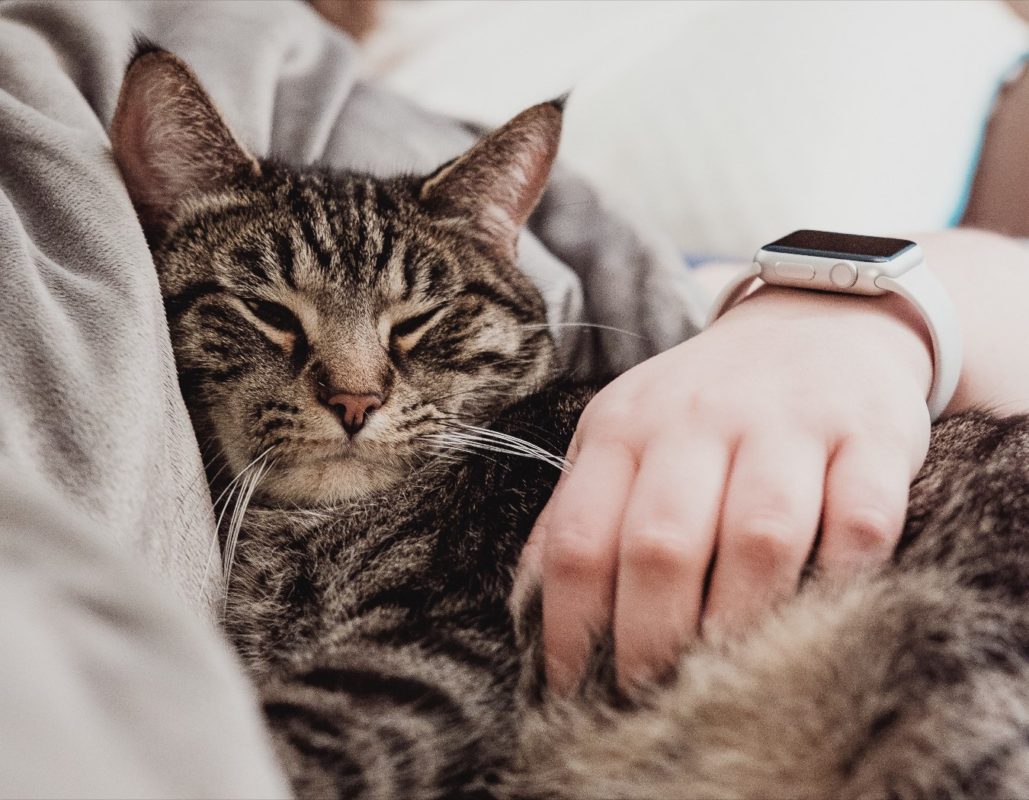Everything, Cats, Health care, Pet Care
How to care for senior cats
Their gait slows down. Their weight goes down, or up. They can’t take care of themselves as well, and chances are that they’ll develop at least one health condition that senior cats are prone to. Senior cats require more care from us than they did when they were younger. We can do a lot to make these years more comfortable for our cats, starting even before the signs of aging appear.
How old is your cat?
The formula of seven years of a cat’s life equaling one year of a human’s life doesn’t fit with how cats age. A more accurate formula is to consider a one-year-old cat similar in age to a 16-year-old person and a two-year-old cat comparable to a 21-year-old person. After that, add four human years for each year of the cat’s life. This formula puts a 10-year-old cat similar in age to a 53-year-old person, while a 16-year-old cat can be compared to a 77-year-old. The rare cats that live to be 20 are on par with people who make it to 93.
Grooming
Older cats may get careless about grooming, or they may have difficulty reaching some areas. A daily brushing or combing will help keep their coats clean and healthy.
Older cats exercise less, and if they don’t keep their nails short via a scratching post, they’ll need a person to trim their nails for them more often. If their nails aren’t trimmed, they can grow back around into their pads resulting in excruciating pain.
If your cat appears to be losing his hearing, wax build-up may be the cause. Observe if your cat doesn’t appear to hear as well, meows more loudly, rubs or claws at his ears, or has an unpleasant odor coming from his ears. Your veterinarian can remove the wax and perhaps provide you with a commercial earwax remover to use regularly on your cat.
Health conditions common in senior cats
In addition to the above conditions, watch for signs of the following common health conditions in older cats:
- Arthritis – difficulty jumping and climbing
- Cancer – sores or swellings that don’t heal, loss of stamina, difficulty eating or exercising
- Dental disease – bad breath, difficulty eating, red or painful gums, plaque near the gum line
- Diabetes – excessive drinking, increased urination or urinating in inappropriate places, lethargy, increased appetite coupled with weight loss
- Heart problems – lethargy, weakness, poor appetite, weight loss, a persistent cough, breathing difficulties
- Hyperthyroidism – a change in appetite, weight loss, diarrhea, difficulty breathing, heat intolerance, more vocal or restless
- Kidney failure – increased drinking and urination, lethargy, poor appetite, weight loss
- Senility – disorientation, forgetfulness, excessive meowing
How to care for senior cats
Observation and treatment
Some of the signs of aging can be from more than one health condition. If you see any of the above or other changes in your cat, bring her to your veterinarian. Even if you don’t see any problems, take your cat for regular examinations. Your cat will have a better chance against disease if treatment is begun in its early stages.
Diet
Your cat should be on cat food for senior cats by the time she.s about 10 years old. Senior cat food has nutritional balances suitable for the changing needs of older cats. Your veterinarian can advise you on when your cat should be on a diet for senior cats.
If your cat is eating less, try different brands and different ways of serving food. Heating it first increases its aroma and makes it more appealing for some cats. Water from canned tuna or a bit of baby food with the food may increase your cat.s interest in eating. Pieces of chicken or other meat may be just what your cat wants.
Also, feeding your cat smaller amounts more often might help her eat more. Experiment until you find what appeals to your cat, and experiment again if her eating habits change.
Assistance
If your cat has mobility problems, make sure her food dishes and litter box are where she can reach them easily. Handle her carefully when you pick her up and put her down. A deep litter box may need to be replaced with a shallow one. Arthritic or weak cats will appreciate stepstools placed next to the bed, sofa, or other furniture that they like to sleep on.
Your cat will feel more vulnerable when she knows that she can’t defend herself. Help keep her stress levels down by keeping her out of situations in which she might feel threatened.


